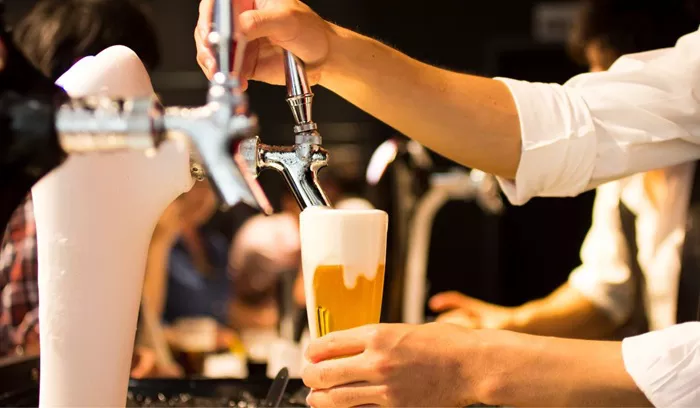Depression is a serious mental health condition that affects millions of people around the world. It can cause a range of symptoms, including sadness, loss of interest in activities, changes in appetite and sleep patterns, and difficulty concentrating. While there are many treatments available for depression, some people wonder if beer could have any positive effects on this condition. In this comprehensive guide, we will explore the relationship between beer and depression, examining the potential benefits and risks.
Understanding Depression
Depression is a complex disorder that can have many different causes. It is often thought to be caused by a combination of genetic, biological, environmental, and psychological factors. Some common risk factors for depression include a family history of the disorder, chronic stress, traumatic life events, and certain medical conditions.
The Composition of Beer
Beer is made from four main ingredients: water, malted barley, hops, and yeast. Each of these ingredients can have different effects on the body. Water is essential for hydration, while malted barley provides carbohydrates and some vitamins and minerals. Hops add flavor and aroma to beer and may have some potential health benefits. Yeast is responsible for fermenting the sugars in malted barley to produce alcohol.
Potential Benefits of Beer for Depression (If Any)
1. Relaxation and Stress Reduction
One possible benefit of beer is its ability to promote relaxation and reduce stress. Alcohol can have a sedative effect on the body, which can help people feel more calm and relaxed. For some people, having a beer after a long day may help them unwind and forget about their worries. However, it’s important to note that relying on alcohol to manage stress is not a healthy long-term solution and can lead to other problems.
2. Social Interaction
Another potential benefit of beer is its role in social situations. Sharing a beer with friends or family can be a way to connect with others and feel a sense of belonging. Social support is an important factor in mental health, and having positive social interactions can help reduce feelings of depression. However, it’s important to drink in moderation and not rely on alcohol as the only way to socialize.
Risks and Drawbacks of Beer for Depression
1. Alcoholism and Dependency
One of the biggest risks of using beer to deal with depression is the potential for alcoholism and dependency. Alcohol is a depressant, and over time, excessive drinking can lead to a worsening of depression symptoms and an increased risk of developing alcohol use disorder. People with depression may be more vulnerable to developing alcohol problems, as they may be using alcohol as a way to self-medicate.
2. Negative Impact on Physical Health
Drinking beer can also have negative effects on physical health, which can in turn affect mental health. Excessive alcohol consumption can lead to liver damage, heart disease, high blood pressure, and other health problems. These physical health issues can add to the stress and burden of living with depression and make it more difficult to manage the condition.
3. Interaction with Medications
If you are taking medications for depression, drinking beer can interact with these medications and cause unwanted side effects. Some antidepressant medications can have dangerous interactions with alcohol, increasing the risk of dizziness, drowsiness, and even respiratory depression. It’s important to talk to your doctor or pharmacist about any potential interactions between alcohol and your medications.
See Also: Which Beer Has The Lowest Alcohol Content?
Alternatives to Beer for Managing Depression
There are many healthier alternatives to using beer to deal with depression. Some options include:
1. Exercise
Regular physical activity has been shown to have a positive impact on mental health. Exercise can release endorphins, which are chemicals in the brain that can improve mood and reduce stress. It can also help improve sleep, boost self-esteem, and provide a sense of accomplishment.
2. Therapy
Talking to a mental health professional can be a very effective way to manage depression. Therapy can help you understand your thoughts and feelings, develop coping strategies, and work through any underlying issues that may be contributing to your depression.
3. Healthy Diet
Eating a balanced diet rich in nutrients can also support mental health. Foods like fruits, vegetables, whole grains, lean proteins, and healthy fats can provide the body with the energy and nutrients it needs to function properly. Some nutrients, such as omega-3 fatty acids, vitamin D, and B vitamins, have been linked to improved mood.
4. Social Support
Building and maintaining strong social connections can be crucial for mental health. Spending time with friends and family, joining a support group, or volunteering can all help you feel more connected and less isolated.
Conclusion
In conclusion, beer is not a good solution for depression. While it may provide some temporary relief in the form of relaxation or social interaction, the risks and drawbacks far outweigh any potential benefits. Excessive alcohol consumption can lead to alcoholism, dependency, and negative impacts on physical and mental health. Instead of relying on beer, it’s important to seek out healthier alternatives such as exercise, therapy, a healthy diet, and social support. By taking care of your physical and mental health in a positive way, you can better manage depression and improve your overall quality of life.
You might be interested


